 When to Hire a Bookkeeper for your Small Business
When to Hire a Bookkeeper for your Small Business
When to hire a bookkeeper? Well, when you’re just getting your small business off the ground, it’s easy to think you can handle most of the tasks yourself. After all, you can learn how to do anything on the internet, right?
But while that might be true, it’s also true that there are some things in life better left to other people. When it comes to keeping your books and preparing for tax season, it might be worth considering hiring a bookkeeper, but you need to know when to hire a bookkeeper for your small business.
Bookkeeping can be tedious and difficult if you don’t know what you’re doing. Plus, keeping accurate records is essential for long-term growth and success. If you wait until your business starts generating enough money that it can have a dedicated bookkeeping service provider, chances are that you’ll wish you had hired a firm sooner so that they could get a head start on organizing your finances. If any or all of these scenarios depict your current situation as a business owner it might be time for you to hire a bookkeeper for your small business.
Doing your own bookkeeping can be a time-consuming task.
Nobody wants to waste their time doing bookkeeping. If you’re a writer, you’d rather be writing. If you’re a business owner, you’d rather be doing things that are more directly related to your business. But if you want to make sure your taxes are done right and your financials are in order, you’ve got no choice but to do it at some point.
A recent poll shows that 39% of small business owners spend more than 60 hours a week doing their bookkeeping and taxes.
If you’re spending hours each week on bookkeeping, are you really getting the most out of your time?
Not only does overworking lead to burnout, but every minute you spend on a task has a dollar equivalent. First, start tracking how much time you spend per week on bookkeeping. Then, using an online calculator, determine how much your time is worth, and figure out how many “dollars” you spend on bookkeeping per month. Compare your “salary” as your own bookkeeper against the price of professional bookkeeping. Once you treat the time you spend bookkeeping as an actual expense in cash, you’ll have a better idea of whether you should keep doing it—or if hiring a pro is actually a bargain.
 Struggling to keep your books up to date?
Struggling to keep your books up to date?
So what’s the big deal?
When you fall behind on bookkeeping, your books stop reflecting the actual state of your finances. That makes it harder (sometimes impossible) to understand cash flow and accurately gauge the health of your business.
When you don’t have accurate data, you can’t make good business decisions. For example, if you don’t know how many customers found your website last month, you can’t determine whether your marketing efforts are effective or not. Another example is if your Cost of Goods Sold (COGS) hasn’t been updated in six months, you can’t subtract it from your revenue in order to determine how much profit you’ve earned in that time.
This can be a real problem when it comes time to do your taxes because you can’t just make up numbers to put on your tax forms. The IRS wants proof of every expense and income statement, so if you’re missing documents, they aren’t just going to give you a pass. And if you’re found guilty of tax evasion or fraud, you could wind up paying huge fines or even serving prison time!
We know that keeping your books up to date can be a tough thing to prioritize. It’s a bunch of extra work, and you’re busy running your business, so it’s easy to put it on the back burner. But if you don’t keep up with your bookkeeping, it can actually make the things you want to do (like grow your business or expand into new markets) more difficult. If you don’t know where your money is going or what your profit margins are, you won’t know whether or not it makes sense to invest in that new opportunity.
What’s more, if your books aren’t up to date, you’ll have a ton of catch up bookkeeping to do during tax season, making a typically stressful time of year even more difficult. With a bookkeeping service provider, you can expect to receive monthly financial statements, so you’ll know where your money is going to and coming from.
It’s important to have a clear picture of where your company’s money is going and coming from, but not everyone has time to do their accounting themselves. If you’re looking for a way to access this information without sacrificing too much time or energy on the task, try hiring a bookkeeping service. A good one will be able to provide monthly financial statements so you’ll always know what your money’s doing.
Tired of high professional fees?
If you’re looking for a bookkeeper, you may be offered services from a Certified Public Accountant (CPA). While you can certainly go this route, you’ll likely end up paying more than you need to.
Bookkeepers generally charge less per hour than CPAs and are able to perform the same tasks that don’t require the specialized skill set of a CPA. Bookkeepers are also more likely to be available during extended hours (and even on weekends), whereas CPAs tend to be busier during tax season and might charge more if they work outside of the hours they’ve designated as “normal.”
If you need to look back on your month-to-month financial records, an accountant won’t necessarily provide you with retroactive month-to-month financial records. Definitely a downside of having an accountant since your business records are essential if you want to secure loans, bring investors, or sell your business!
Tax Filing = Arm Wrestling?
We’ve all been there. You’re getting ready to send in your taxes, and you have to email your tax preparer with a few questions. And then you realize you have a lot more than “a few” questions! Suddenly it’s three days later, and you’re still sending them questions.
This scenario is often caused by handing off messy or incomplete books to your tax preparer. You’ll probably be caught in a web of emails and phone call as the two of you puzzle your way through a year’s worth of uncategorized expenses, income, and business loans.
Filing your taxes should be a breeze, not a lengthy arm wrestling match between you and your tax preparer. A comprehensive full charge bookkeeping service provider can help you make tax season a breeze.
Being able to deduct certain expenses as a business owner is one of the perks of entrepreneurship. But it’s not always easy to know what you can and can’t claim—and it’s certainly not always easy to keep track of everything.
A bookkeeper’s job is to take every business expense you incur and categorize it properly. In the process of doing so, they’re able to spot obvious deductible expenses such as mileage, which you can use when you’re traveling for work.
But they can also help identify deductions that are less straightforward—such as the cost of business meals, or even the annual fee for your credit card if you use it primarily for business purchases. Having the right bookkeeper can help you avoid missing out on applicable tax deductions and tax write-offs.
In the dark with your cash flow?
It’s a strange feeling, isn’t it? You know you’ve got money coming in from your clients—but you don’t know how much it is or when it will arrive.
It’s enough to give anyone the jitters. And if you’re a small business owner, that uncertainty can be downright maddening.
As a business owner, you need cash flow statements. A cash flow statement tells you how much money other people owe you, and how much money you owe other people. It’s kind of like a crystal ball that shows you the future of your bank account.
Here’s why cash flow is so important:
- It shows how much money is coming in and out of your company, and why. You see exactly where all your money is going, and how it really adds up to a certain amount that you can expect to be in your bank account at a certain time. Like a little glimpse into the future of your bank balance.
- You can make more informed decisions about the future of your business—what to do with extra capital, the best time to make an investment in equipment or hire more employees, etc.
- Forecasting is easier—you can make projections based on data you already have access to (exactly how much do we spend on inventory each month? How much revenue do we expect to get from this new client?)
Having a bookkeeper can help you stay on top of your cash flow statement so you never have to plan for the future in the dark. You will always be equipped with the right information to plan your business expenses in the now.
Bottom line won’t budge?
When you’re trying to grow your business, it’s easy to focus on just the top line: revenue. But what about your bottom line? Revenue and profit are not the same thing—if you want your business to be successful, you need to think about both of these numbers, and how they interact.
If your revenue is on the rise but your bottom line won’t move, it means you need to increase your profit margins. That’s where tax-ready financial statements from a bookkeeper can help you recognize where you need to cut costs in order to make your business more profitable.
 Concerned about your sensitive financial data security?
Concerned about your sensitive financial data security?
When you use your office computer or your personal computer to record, track, and store your financial information, you must be 101% certain that your computer is secure from fraudulent activities.
Ransomware attacks are a threat that can potentially cause you to lose years of sensitive financial information. In 2017, a ransomware called ‘WannaCry” infected over 230,000 computers in more than 150 countries. The ransomware encrypted the data of its victims making it inaccessible.
Latest research reports that over 90% of home computers have been infected by spyware at some point in time. This means that if you’re doing your bookkeeping on your home or office computer, there’s a good chance someone else has or eventually will have access to your personal and business financial data.
Bookkeepers like FAS Bookkeeping and Tax Services use the latest encryption software available in the market to ensure that the financial data it handles and stores are safe and secure from prying eyes.
Bottom line
When one or two things listed above fit you, it might be time to pick up the phone and start searching for the best bookkeeper you can find. Here are the things that a professional and experienced bookkeeper or bookkeeping service provider must offer to you:
Reachability
There is nothing more frustrating than having to wait days, or weeks, for a reply. If your bookkeeper doesn’t answer emails in a timely fashion, it is time to find someone who will.
Adept with taxes
Bookkeeping is closely related to your taxes. If your bookkeeping is also an Enrolled Agent that is certified by the IRS to prepare and file taxes, then you found the perfect bookkeeper or bookkeeping service provider!
High standards when it comes to security
A bookkeeper will have complete access to your day-to-day business transactions. Make sure that your bookkeeper or bookkeeping service provider puts emphasis on data security so you can avoid the risk of having all of your personal and business financial data taken by unscrupulous individuals.
At FAS Bookkeeping and Tax Service, we put security at the top of our priority! With us, you can rest assured that your financial data is securely handled and stored with the latest encryption technology available in the market. Couple that with the experience and expertise of our Bookkeepers and our Enrolled Agent!
Are we the right fit for you? Get in touch with us and find out!

 When you’re a small business owner, it can be hard to know where your money is going.
When you’re a small business owner, it can be hard to know where your money is going.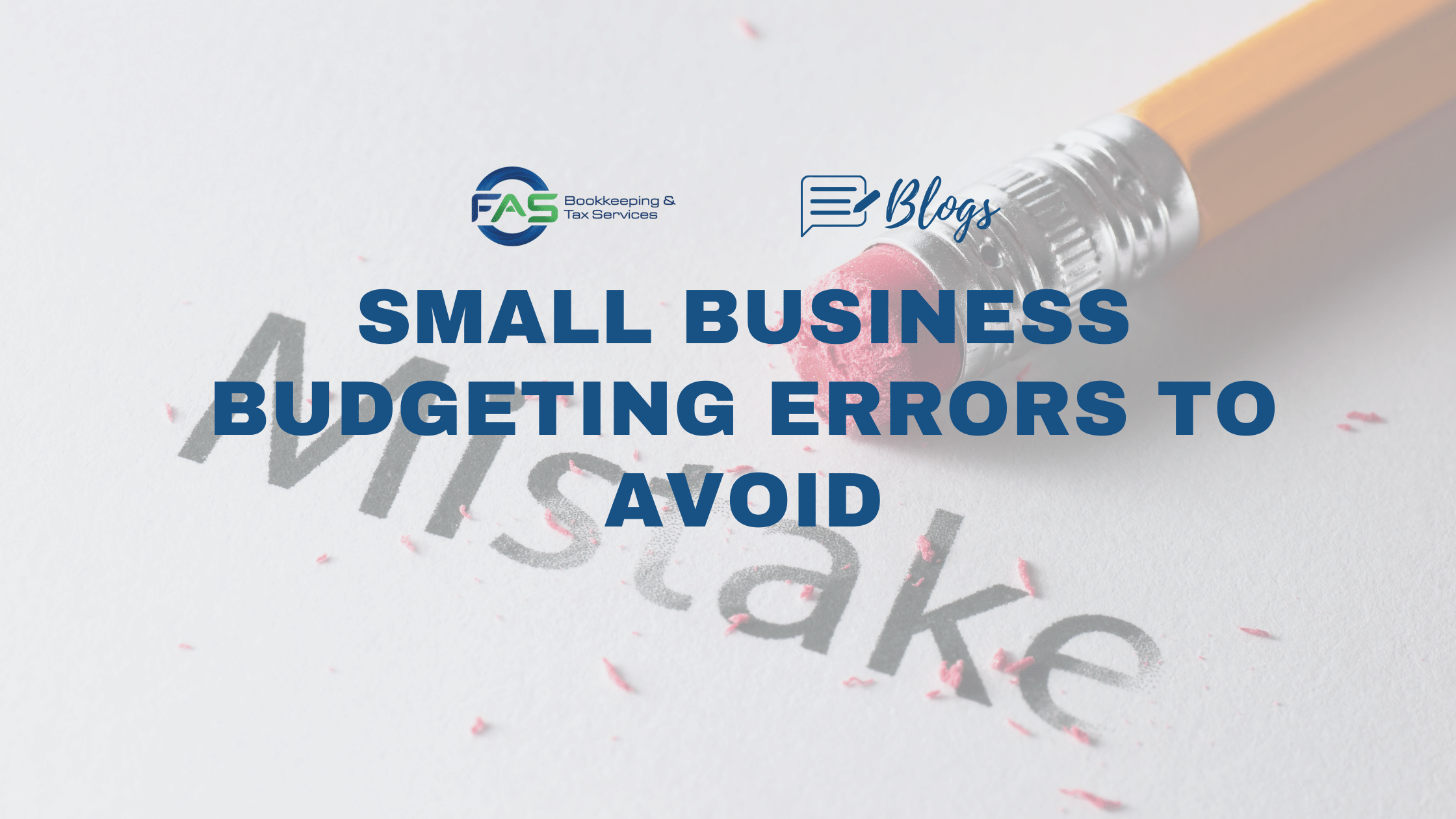


 You don’t know your cash break-even point
You don’t know your cash break-even point Sometimes, when you’re in the middle of a growth spurt and need to expand your operations quickly, it’s tempting to use long-term debt to cover short-term costs. That’s because it’s often easier and faster to get money from a lender than it is to raise funds from investors or sell equity shares yourself.
Sometimes, when you’re in the middle of a growth spurt and need to expand your operations quickly, it’s tempting to use long-term debt to cover short-term costs. That’s because it’s often easier and faster to get money from a lender than it is to raise funds from investors or sell equity shares yourself.
 FATCA reciprocal reporting – A two-way street
FATCA reciprocal reporting – A two-way street Still got time to be compliant
Still got time to be compliant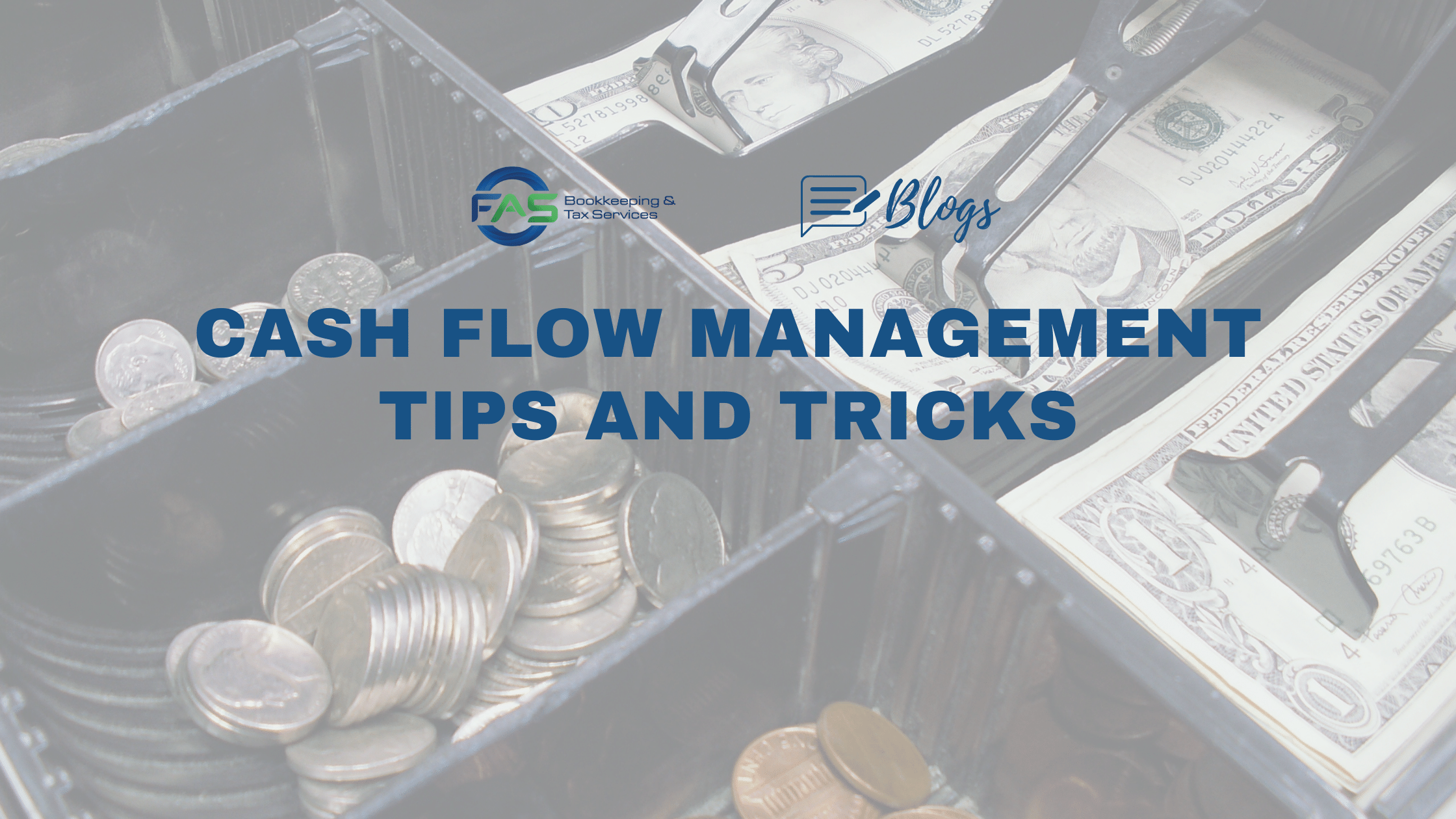
 Profit vs. Cash Flow – Know the difference between
Profit vs. Cash Flow – Know the difference between  Learning how to manage your cash flow can help you survive difficult business climates and protect your company’s short-term financial reputation.
Learning how to manage your cash flow can help you survive difficult business climates and protect your company’s short-term financial reputation.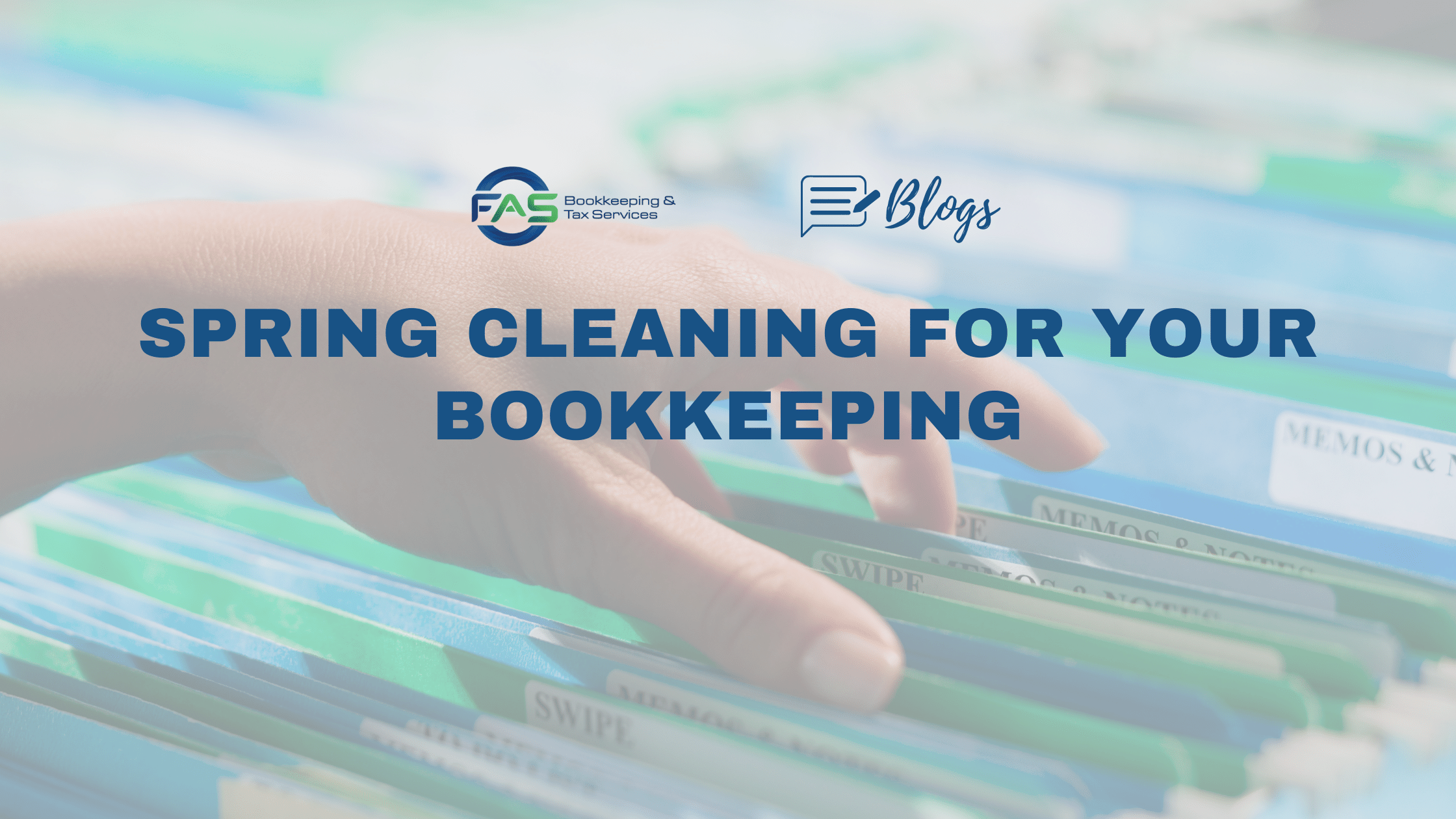
 It’s the 21st century, get out of the 20th! So here’s a bookkeeping clean up tip that might not seem obvious but a lot of small businesses are still using papers for
It’s the 21st century, get out of the 20th! So here’s a bookkeeping clean up tip that might not seem obvious but a lot of small businesses are still using papers for  Bookkeeping clean up is easier if your business has embraced being paperless, you can start transitioning to a
Bookkeeping clean up is easier if your business has embraced being paperless, you can start transitioning to a  Are you happy with the technology your business is currently using? It might be time to take a look at your small business’ tech setup.
Are you happy with the technology your business is currently using? It might be time to take a look at your small business’ tech setup.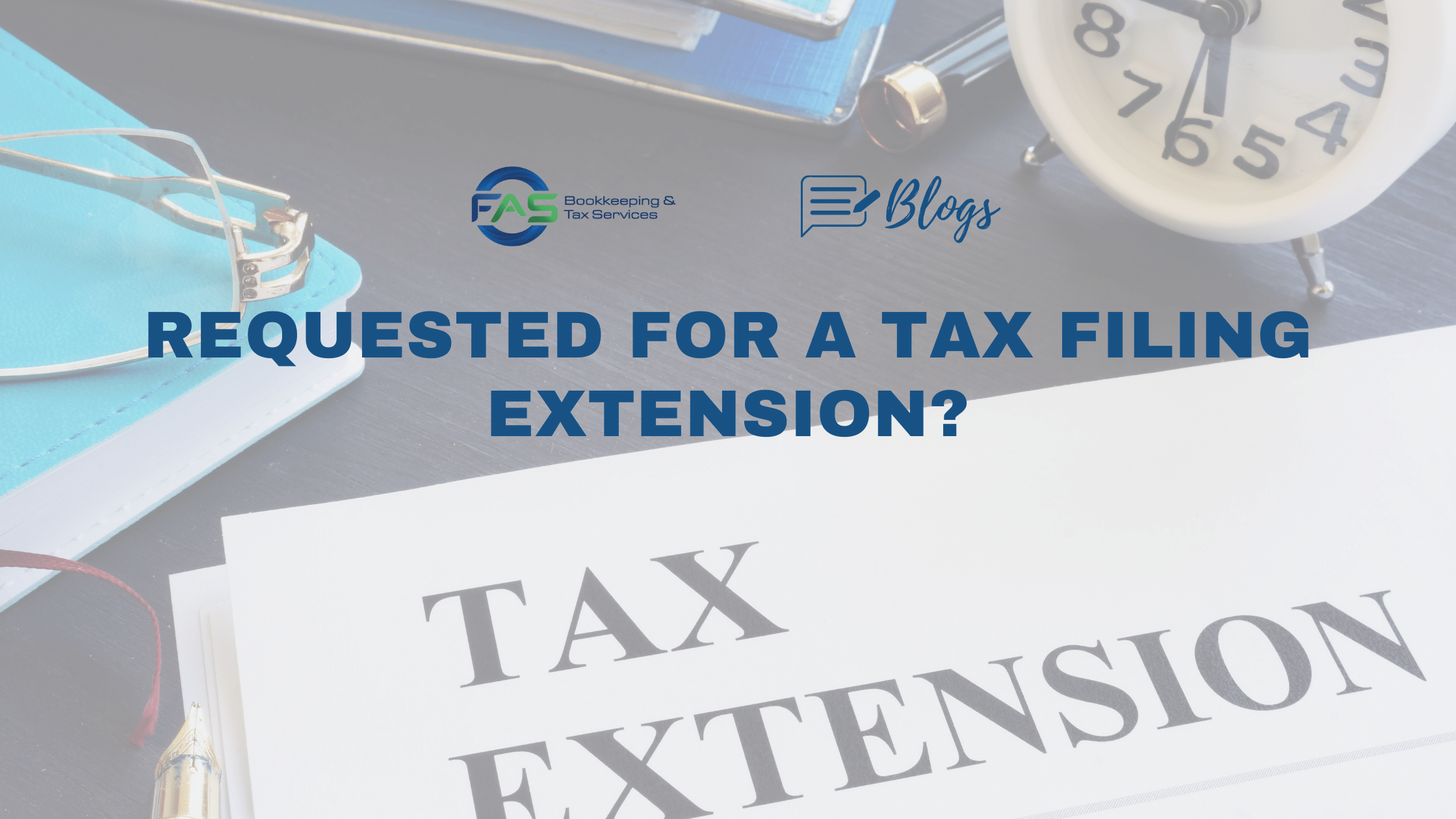
 How is the tax filing extension requested?
How is the tax filing extension requested? Tax Filing Extension for
Tax Filing Extension for 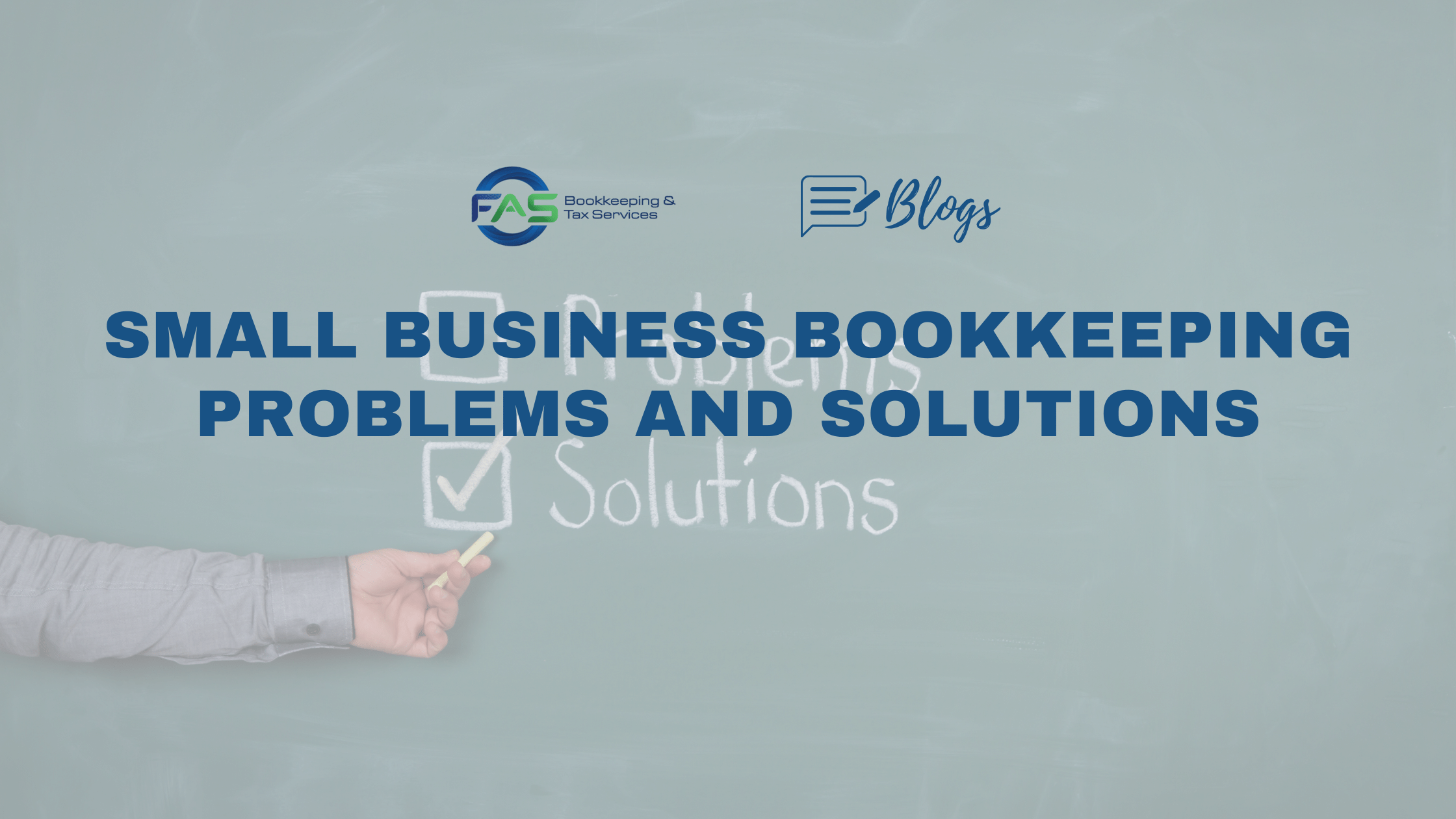
 Bookkeeping Problem #1: Incorrect Bookkeeping
Bookkeeping Problem #1: Incorrect Bookkeeping Bookkeeping Problem #2: Wrong data entry
Bookkeeping Problem #2: Wrong data entry Bookkeeping Problem #3: Miscalculated cash flow
Bookkeeping Problem #3: Miscalculated cash flow Bookkeeping Problem #4: Undervalued time and effort
Bookkeeping Problem #4: Undervalued time and effort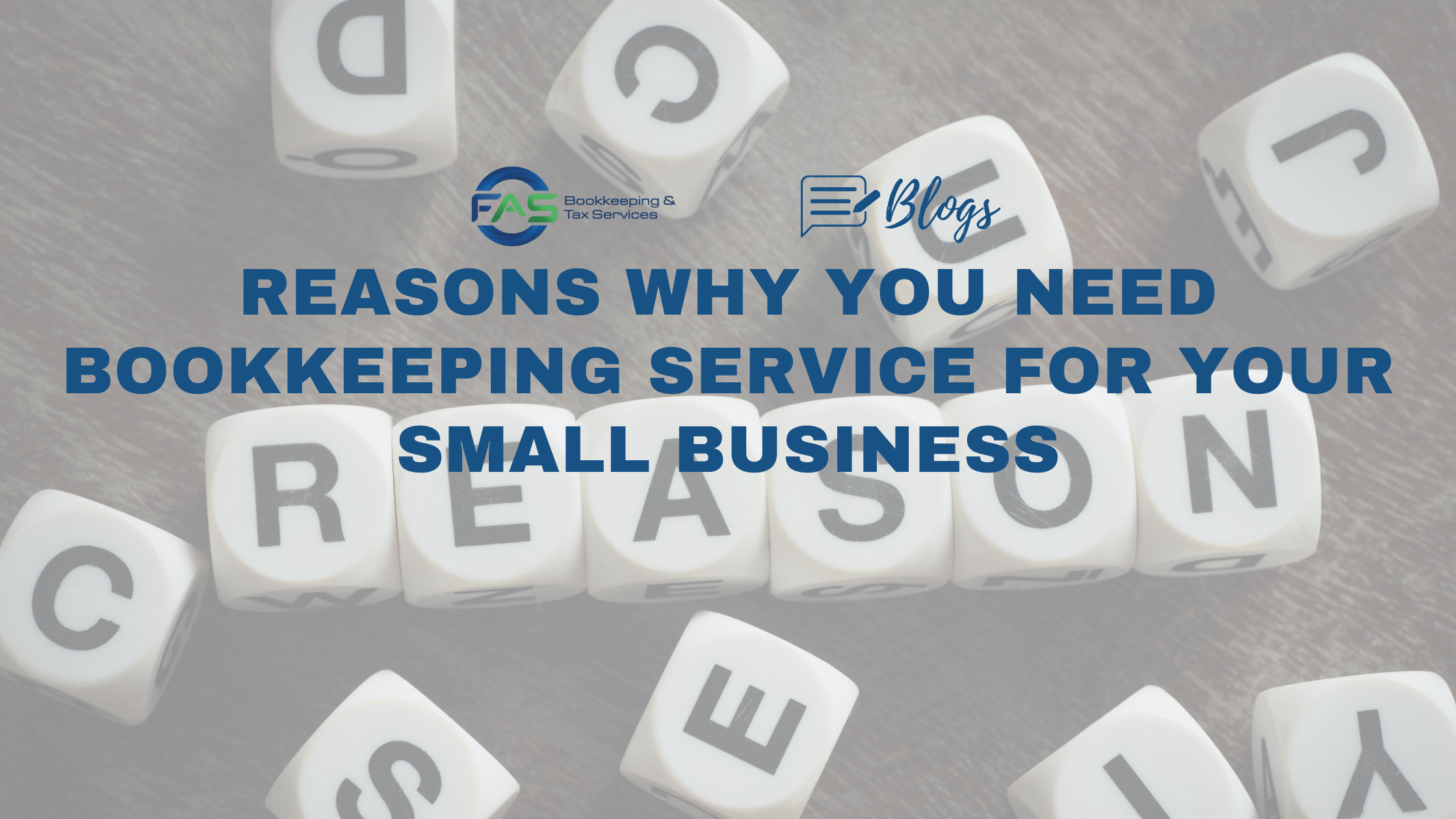
 Reasons why you need Bookkeeping Service for your Small Business
Reasons why you need Bookkeeping Service for your Small Business

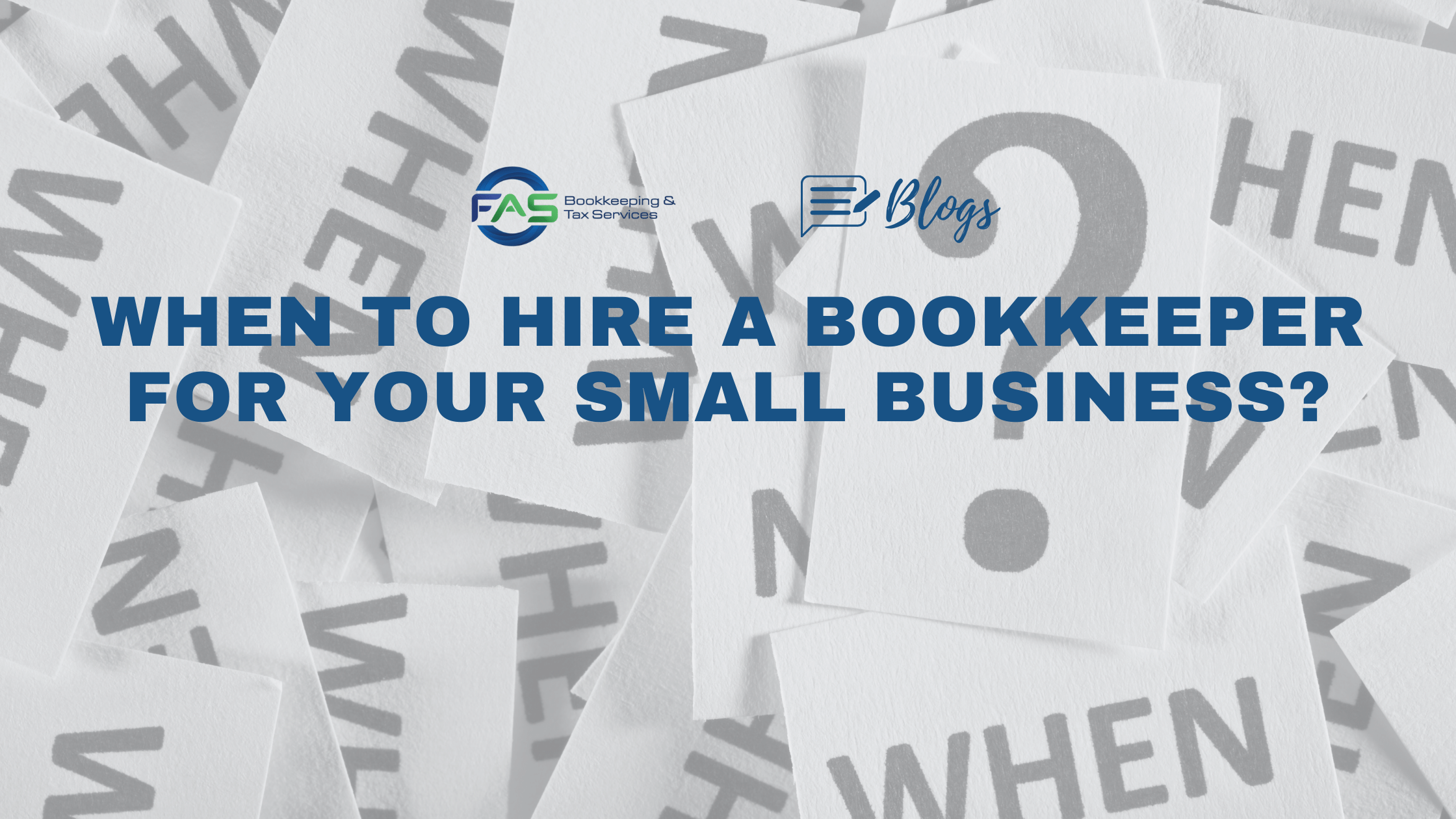
 When to Hire a Bookkeeper for your Small Business
When to Hire a Bookkeeper for your Small Business Struggling to keep your books up to date?
Struggling to keep your books up to date? Concerned about your sensitive financial data security?
Concerned about your sensitive financial data security?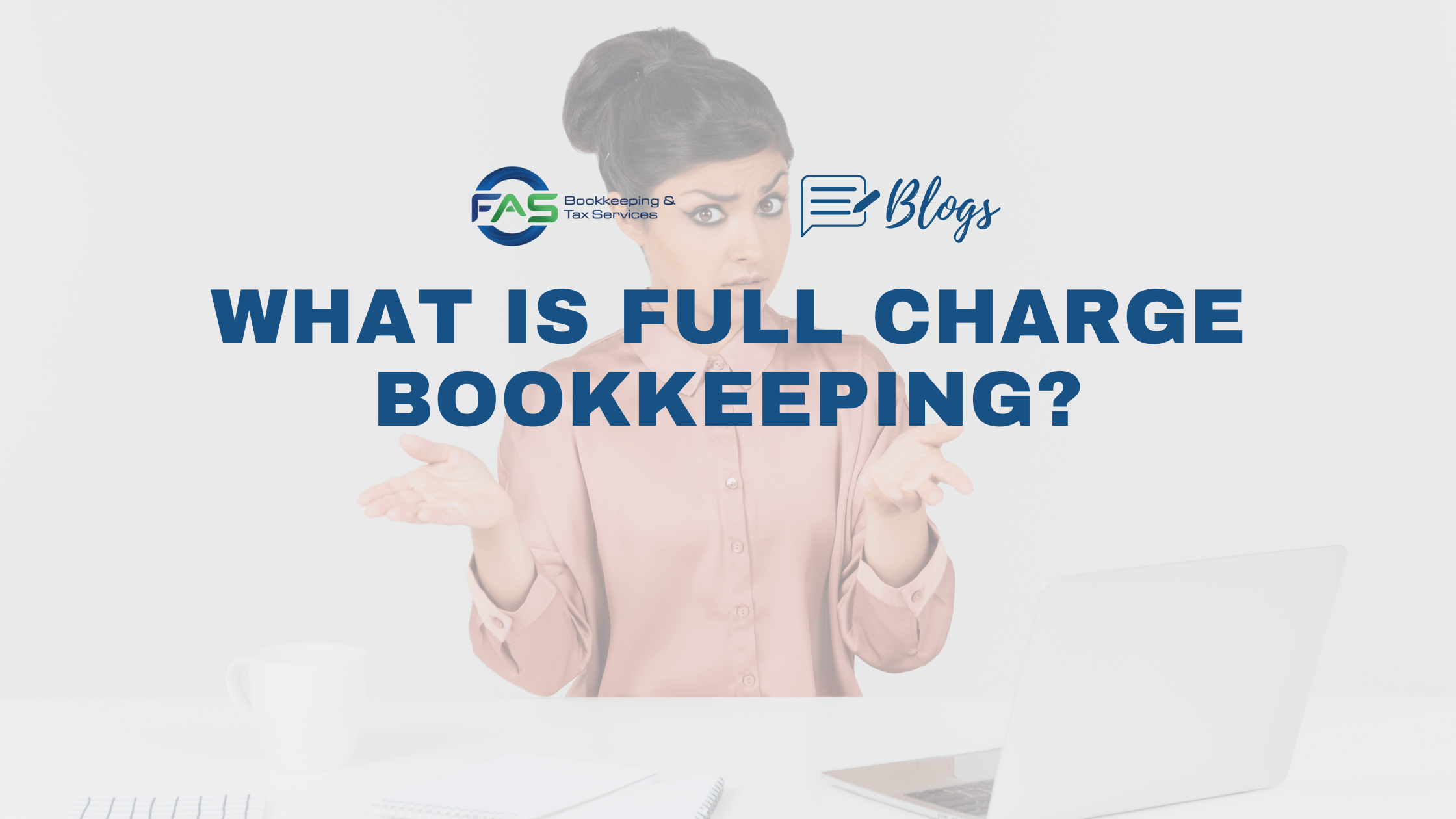
 What exactly is Full Charge Bookkeeping?
What exactly is Full Charge Bookkeeping? Handles your Banking
Handles your Banking
 Prepare Tax Returns
Prepare Tax Returns
